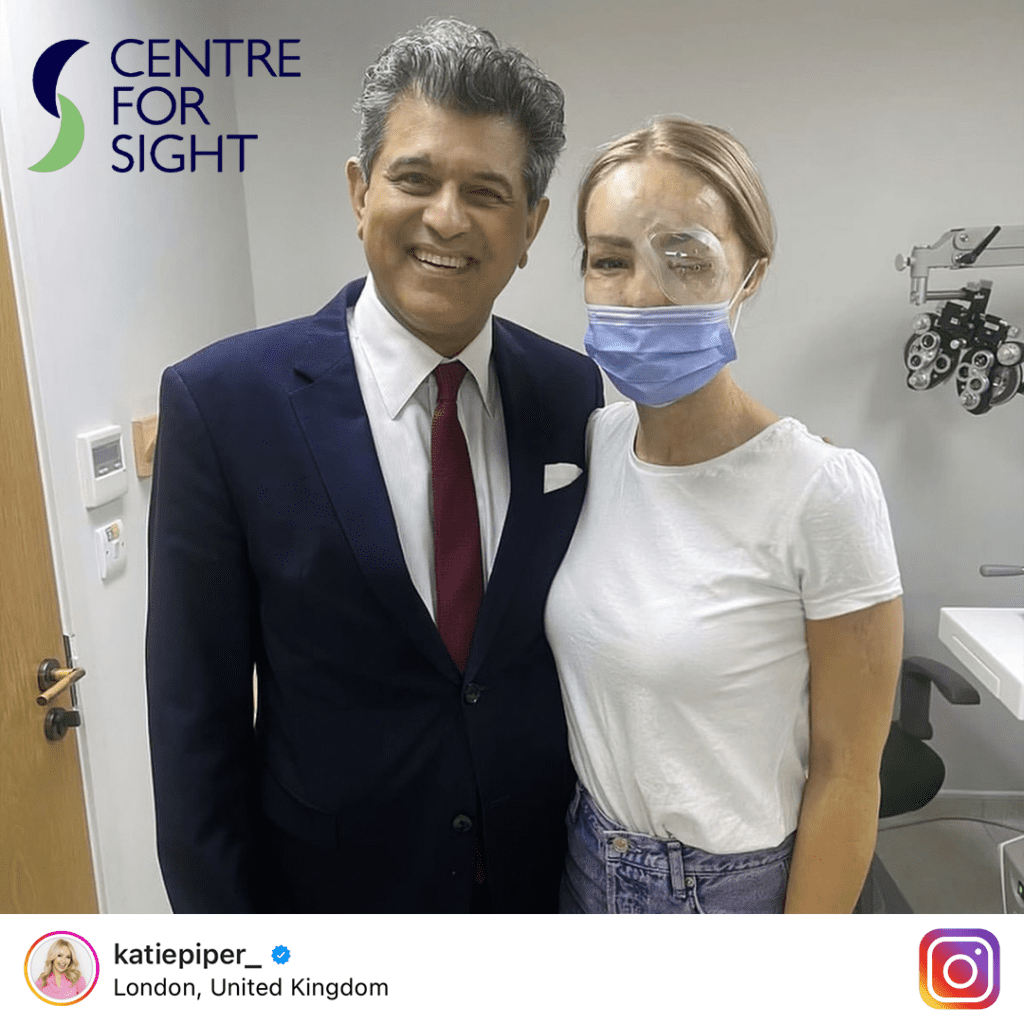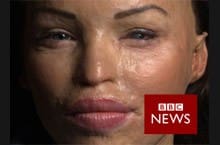Katie Piper
Katie Piper is a remarkable woman who has a phenomenally positive outlook in spite of her injuries and has made it her mission to help others similarly afflicted. In 2009 Katie established the Katie Piper Foundation with the vision to make it easier for people to live with burns and scars. An inspiration to many others who have been affected, Katie works tirelessly and continues to make considerable accomplishments including writing several books which have been a source of inspiration to so many. We wish Katie and her foundation tremendous success and are very proud and honoured to have been able to contribute to her care.


I have received excellent care for Mr Daya and Centre for Sight. The improvement in my quality of the life the treatment had given me is priceless. Mr Daya has given me back something I thought I had lost forever and also given me hope for future procedures. What I thought could be a traumatic and frightening procedure was made simple and comfortable by him due to his caring nature and extreme professionalism
Background – Limbal Stem Cell Deficiency
Katie underwent what is known as a Ex-vivo limbal stem cell allograft transplantation (EVSCALT) to repair the damage to an area on the front of the eye called the Limbus. Limbal stem cell deficiency can occur for a variety of reasons: Congenital in patients with a condition called Aniridia where there is no iris and acquired for example chemical burns to the eye, which was the case with Katie. Limbal stem cell deficiency impairs normal corneal epithelial growth and instead abnormal epithelium (covering on the surface of the eye) grows on the corneal surface resulting in a cloudy cornea, poor vision, instability of the surface, blood vessel ingrowth and discomfort and pain.
You can read a more in-depth description of the procedure here…


What progress has Katie Piper made?
Since her procedure, Katie’s left eye is less angry and no longer intensely red. Her cornea has cleared considerably and she has had an improvement in her sight. She does have a small yellow/white spot on her left cornea which is a fat deposit brought in by the blood vessels. Because of this and an irregular corneal shape, Katie will in due course require a corneal transplant to obtain better vision.
Read More




